Sugars, added sugars, and sweeteners — some of the greatest threats to human health — are back on the discussion table, with a new twist. Results from a recently published study, which combined decision-making tests with brain imaging data, show that fructose helps our brains to find high-calorie foods more appealing — in other words, it leads us to overeat.
Fructose occurs naturally in fresh fruits — thus, many people think of fructose as a “healthier” alternative to other types of sugar. However, fruits contain very small amounts of this sugar. In contrast, fructose is present in much larger amounts in sweetened products such as soda.
The study was carried out with a group of 24 healthy volunteers — researchers first asked the volunteers to rate their hunger and desire to eat on a one-to-10 scale (from “not at all” to “very much”). Then, they asked the volunteers to drink cherry-flavored water containing either fructose or glucose. Researchers measured levels of glucose, fructose and insulin in blood samples collected from all volunteers. They also measured levels of leptin and ghrelin, which are enzymes involved in controlling hunger and satiety. In addition, they showed all volunteers images of food and neutral objects, and asked them to rate their desire to eat — not only, researchers at the same time performed functional magnetic resonance imaging brain scans on the volunteers. Finally, researchers showed images of high-calorie food to the volunteers, and asked them to choose between food (given at that time), or a monetary award (given a month later.)
The researchers found that, when compared to glucose, fructose resulted in increased activity in the brain’s reward regions, led to greater hunger and desire for food, and promoted a willingness to give up long-term monetary rewards to obtain immediate high-calorie foods.
Although there was no difference in the levels of hunger and satiety hormones between fructose and glucose drinkers, the insulin response was clearly lower in fructose drinkers. Kathleen Page, senior author of the study, told the New York Times that the lower insulin response may affect what we eat. “Insulin is released when we consume glucose,” she said. “The pancreas secretes insulin, and insulin drives glucose into cells so that it can be used for energy. But it also sends a signal to the brain that says ‘you’ve eaten.’ Fructose doesn’t stimulate insulin secretion, and if there’s no insulin, you don’t get the information that you’re full.”
All together, these results are not surprising — rather, they almost unequivocally confirm what already suspected. Robert Lustig, professor of pediatric endocrinology at University of California, San Francisco, explained a few years ago that instead of helping to sate us, fructose fools our brains into thinking we are not full, so we overeat.
Fructose is responsible for additional problems. According to Lustig, excess fructose cannot be converted into energy by the mitochondria inside our cells. Instead, our cells turn excess fructose into liver fat, starting a cascade of insulin resistance that leads to chronic metabolic disease, diabetes and heart disease.
How can we respond to the new findings? As Alice Walton says: “The real moral might be just to eat more natural foods, and worry less about what kind of added sugar is in our foods and drink – we shouldn’t be eating these anyway. In other words, if we’re really eating healthy, that question should be moot.”
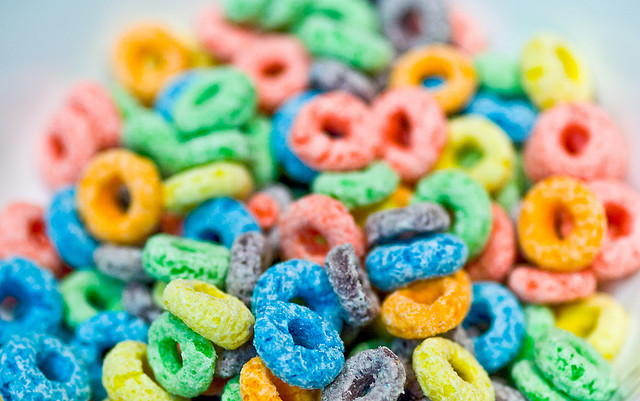
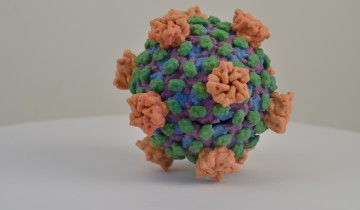
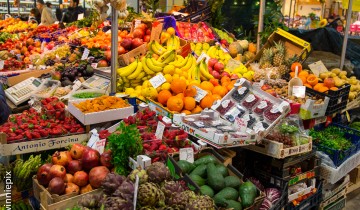
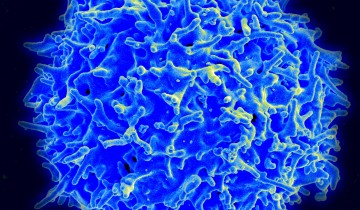
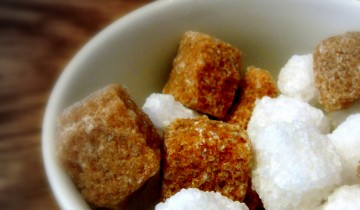
I have read many articles that have pointed out issues with consuming fructose and I was skeptical after reading them because I think of fructose being in fruit and fruit as being healthy. This article helped me clarify a few of my previous thoughts and reasonings once it was mentioned that fruit actually contains little fructose. The other part of the article makes a lot of sense because it is true that after eating a piece of fruit, most of us do not get the feeling of being full and that feeling could lead us to overeat but at minimum leads us to seek something more satisfying.
In his book “Grain Brain”, Dr. David Perlmutter highlights the dangers associated with eating all sugars. He emphasizes that they lead to declined cognitive function and ultimately Alzheimer’s and proposes that they are partly responsible for the high incidence of Alzheimer’s currently seen.
I just want to add on to this comment about declined cognitive functions and eventual Alzheimer’s Disease. That research has shown the Alzheimer’s Disease is actually might be Type 3 Diabetes. That the disturbances in the brain insulin and insulin-like growth factor levels are causing issues in cerebral glucose use and energy metabolism in the brain. These are early indicators of cognitive impairment.
So if one is consuming artificially high levels of fructose, leading to overeating because of them not feeling full. The insulin resistance caused by the liver fat produced by the over eating can eventually cause Alzheimer’s Disease.
Sucrose, the sugar which is made up of glucose and fructose, glucose which is present in all the body cells whereas fructose is not present everywhere. It occurs naturally in the fresh fruits, but taken artificially through corn syrups and other artificial sweeteners.
Fructose is metabolize by the liver into glycogen if this does not happened due to less of exercise and more intake of sugary food, the fructose get stored in body tissues as fat molecule and causes insulin resistant that is, the liver cannot recognize the insulin and causing the high production of same leading to high secretion of leptin in the body which causes the obesity.
Glucose level are increased when there is high intake of processed food and food containing high level of sugar causing increase in blood glucose level which leads to type 2 diabetes
In a related article it was stated that the increase level of fats due to fructose cause the decrease in tolerance of glucose by the body cell due to the diabetes and hepatic disease.
We should try avoiding artificial sweeteners and try to consume more of the natural sweeteners like maple syrup, coconut nectar. Avoid high fructose containing sweeteners like agave and corn syrup.
Having worked for Coca Cola, I can confirm that ingesting large amounts of fructose can lead to a strong craving of more sugars. Before working there, I rarely voluntarily bought anything sweet and never put sugar in my tea or coffee. While working for Coca Cola, I had access to unlimited soda, and because it was free and convenient, I drank around a glass of a drink containing high fructose corn syrup a day. I definitely noticed my development of a never seen before sweet tooth. I also have read in different articles that artificial sweeteners also cause weight gain in the long run by increasing the desire for sugary foods. I believe both fructose and many artificial sweeteners, like aspartame, results in a increased desire for sugar because they are both low glycemic index foods. Being low in glycemic index means that they have a smaller impact on the insulin levels. If so is the case, would foods high in glycemic index help us feel fuller faster?
I would be interested in seeing this study examine the artificial sweeteners sucrose and sucralose in the same manner to see if they also exacerbate cravings for high calorie foods. If so, drinking diet drinks could be even worse for you than drinking other beverages loaded with high fructose corn syrup. I have noticed from working in the restaurant industry that customers who drink diet sodas tend to drink them in abundance. In other words they are constantly in need of a refill.
Concern about fructose versus glucose should really only be a problem if you are eating certain processed foods in the first place. I can see how this can be a problem for parents with kids that enjoy candies and other snacks, but these things should enjoyed in moderation, while water consumption, fresh fruits, vegetables, and exercise should be the norm. I have recently been of the opinion that the best liquid to consume is water and that it is better to consume food that does not come in some type of wrapper or packaging. It can be hard due to the fast pace of our society, and it is definitely easy to overeat. Portion control is difficult if you are not used to it and staying away from sweets is almost impossible if you love sweets or certain soft drinks. It is important to understand that food is fuel for your body, and that the quality of food consumed can greatly affect the body’s performance.
I find this area of research fascinating. Mostly because I love food. Recently to curb my own diet I’ve been eating an increase of fruits during the day while out and about when I don’t have the chance to make anything solid. The sugar molecule found in fruits is Fructose. I learned from this post, that Fructose does not trigger an insulin secretion. Apparently the pathway to feeling full requires the insulin activation step. However, what does fruit have to offer? What makes apples a useful dieting tool is their increase of leptin in the eater. Some light reading on this <a href http://www.marksdailyapple.com/leptin/#axzz3bXPuwBA9 title= “site” shows me that Leptin is secreted from fat cells. Leptin counteracts hunger signals. Overeating increases leptin circulation in the blood, and undereating will uptake leptin from the blood. Leptin basically relates fat cell storage to readily available calories and attempts to control the balance of the two. Of course though, humans have a strong mind resulting in several other pathways controlling hunger we can’t even begin to scientifically study, like boredom, social pressure, pleasure, and addiction. Theoretically this is the result of signals between our cells.
[…] show that fructose helps our brains to find high-calorie foods more appealing — in other words, it leads to overeating. In addition, excess fructose cannot be converted into energy by the mitochondria inside our cells. […]